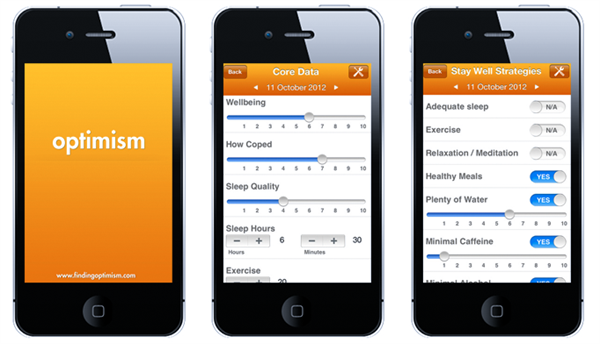
An analysis of advertising material from 61 mental health apps identified two messages that were particularly concerning to lead author Dr Lisa Parker, a qualitative researcher at The University of Sydney’s Charles Perkins Centre, and her colleagues.
Firstly, advertising and screenshots of mental health apps available in Australia, the US, the UK and Canada promoted the idea that everyone experienced poor or fragile mental health.
While the idea of mental health care for everyone might help reduce stigma, it could also increase overdiagnosis and overtreatment, the researchers said.
“We all have ups and downs in our mental wellbeing and that isn’t necessarily something that needs treatment,” Dr Parker said.
Meditation, relaxation and general wellness apps might be useful for everyone. But apps that demanded too much time might actually be harmful, Dr Parker said.
“There was a push for apps to be very time consuming,” she said.
“So you can upload multiple times per day, check once or twice a day. That becomes quite a commitment and a burden and people might actually find that they are thinking and focusing on their mental problems a lot more.”
Secondly, the researchers were concerned about the normative message that people should be responsible for their own mental wellbeing.
“That came across quite strongly,” Dr Parker said.
“All the apps said, ‘If you’re serious about managing your mental health then you should use this product’… So if you didn’t do it, your mental problems were your own fault.
“Those kinds of messages can potentially make people feel like their own mental wellbeing is their own responsibility. as a society we should be supporting people rather than assuming that people should fix themselves,” she said.
The apps also tended to ignore the role of external stressors in mental illness, instead attributing mental health problems to abnormal neurophysiology or to unhelpful psychological habits.
“Only a few apps implied mental health symptoms might be a normal reaction to external stress,” the researchers said.
And while the apps were suggesting that everyone had mental health problems from time to time, they also represented “everyone” as employed, white, and in a family.
The app, Calm Down Now, for instance, listed as everyday mental health problems as ‘jet lag’, ‘stress from work’, and ‘a baby that wakes up frequently at night’.
“A lack of diversity in representation of users and stressors may alienate persons with serious needs,” the researchers said.
Annals of Family Medicine, 2018 July-August

